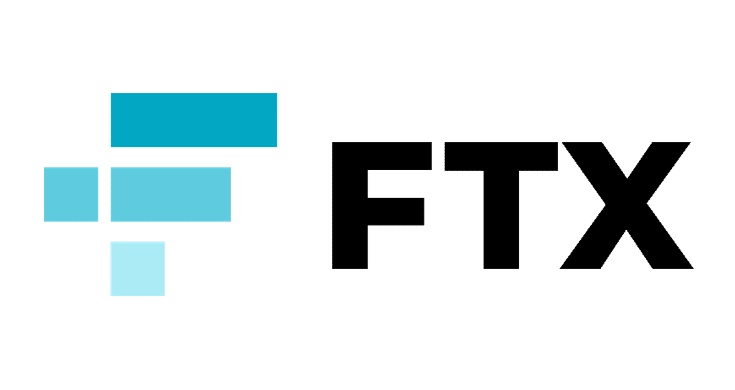Is the Wild West era of crypto coming to an end? Crypto exchange giant FTX is stepping up and taking a proactive stance! They’ve just dropped a 10-point proposal list aimed at US market regulators, signaling a clear desire to shape the future of digital asset oversight. Let’s dive into what FTX is suggesting and what it could mean for the crypto landscape.
FTX’s 10 Commandments for Crypto Regulation: Unpacking the Key Principles
In a recent blog post that’s already making waves, FTX laid out its “Key Principles for Market Regulation of Crypto-Trading Platforms.” These aren’t just vague suggestions; they’re concrete proposals designed to streamline and enhance the regulatory framework for crypto in the United States. Here are some of the highlights:
One Regulator to Rule Them All?
FTX’s first and perhaps most significant proposal is for a single primary market regulator to oversee the listing of crypto assets across both spot and derivatives markets. Why is this important?
According to FTX, the current system, where spot and derivatives markets fall under different regulatory umbrellas, leads to inefficiencies and suboptimal market structures. Think of it like having different traffic rules for different lanes on the same highway – it’s confusing and can cause jams!
To fix this, FTX proposes a unified approach:
“We propose as a solution an alternative regulatory approach that would provide market operators the ability to opt in to a unified regulatory regime for spot and derivatives marketplaces, through a primary regulator model.”
In simpler terms, FTX envisions a system where crypto exchanges can choose to be regulated by one primary body for all their trading activities, simplifying compliance and potentially fostering greater market efficiency.
Crypto Custody: Shining a Light on Behind-the-Scenes Practices
Ever wondered what happens to your crypto assets once they’re on an exchange? FTX is calling for more transparency in how exchanges handle client funds. They emphasize the need for greater disclosure on crypto asset custody practices.
What exactly should exchanges be more open about? FTX lists key areas that deserve attention:
- Wallet Architecture: How are the digital wallets structured and secured?
- Insurance: Is there insurance to protect user funds in case of breaches or other issues?
- Private Key Security: How are those crucial private keys kept safe, managed, and transferred?
- Insider Risk Management: What measures are in place to prevent collusion or fraud from within the exchange?
- Physical Security: How secure are the data centers that house all this sensitive information?
By demanding more disclosure in these areas, FTX aims to build greater trust and confidence in crypto exchanges, ensuring users are better informed about the safety of their assets.
Stablecoin Standards: Addressing the Elephant in the Room
Stablecoins – they’re supposed to be the stable corner of the crypto world, right? FTX is highlighting the need for clear standards on how exchanges handle stablecoins, pointing out that some stablecoins may carry hidden risks. The concern? Some stablecoins might not have sufficient backing from proper assets.
FTX elaborates on the potential dangers:
“For example, a stable coin backed by risky and volatile assets and not transparently backed by an adequate amount of such assets with appropriate haircuts, could become exposed to price risk. This price risk could interfere with settlement finality on the platform, insofar as the value of the stable coin delivered as payment for the crypto assets in a transaction on the platform are suddenly not equal.”
Imagine using a stablecoin to buy another crypto, only to find out that the stablecoin itself suddenly drops in value before the transaction settles! This highlights the importance of robust standards and transparency for stablecoins to maintain their peg and reliability.
KYC and AML: No Compromise on Security and Compliance
Finally, FTX touches upon the critical need for strong Know-Your-Customer (KYC) and Anti-Money Laundering (AML) protocols across the crypto industry. This isn’t new, but FTX stresses the ongoing importance of these measures for maintaining the integrity of the crypto space.
FTX emphasizes:
“However accomplished, it is critical that crypto marketplace regulation continues to require significant focus on the performance of KYC and AML obligations… To ensure this, marketplace operators should be performing periodic self-audits and should also be subject to regular review and exam by their primary regulator on these requirements.”
In essence, FTX is advocating for continuous vigilance and rigorous enforcement of KYC and AML standards to prevent illicit activities and ensure crypto marketplaces operate responsibly.
Galaxy Interactive Rises Additional $325M Fund For Metaverse and Next Gen…>>

Related Posts – Bank DBS’s Crypto Business Grows Massively Due To Growing Demand From Investors
The Bottom Line: Is FTX Paving the Way for a More Mature Crypto Market?
FTX’s 10 regulatory proposals represent a significant step towards a more structured and regulated crypto market in the US. By advocating for unified regulation, greater transparency in custody practices, stablecoin standards, and robust KYC/AML, FTX is not just looking out for its own interests but seemingly aiming to build a more sustainable and trustworthy crypto ecosystem for everyone. Whether regulators will adopt these proposals remains to be seen, but FTX has certainly thrown down the gauntlet and started a crucial conversation. The future of crypto regulation in the US could very well be shaped by these very principles.
Disclaimer: The information provided is not trading advice, Bitcoinworld.co.in holds no liability for any investments made based on the information provided on this page. We strongly recommend independent research and/or consultation with a qualified professional before making any investment decisions.


